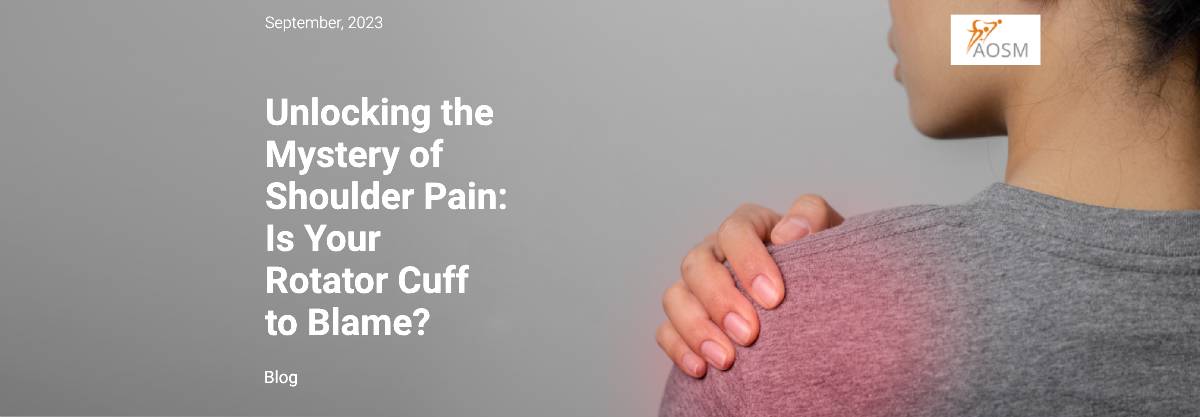
25 Sep, 2023 Unlocking the Mystery of Shoulder Pain: Is Your Rotator Cuff to Blame?
Shoulder pain can be a nagging and debilitating issue that affects people of all ages and lifestyles. It can result from various causes, but one common culprit is the rotator cuff muscles, which can significantly impact one’s quality of life, making it imperative to seek instant treatment. Delaying treatment for a rotator cuff injury may result in the development of a chronic condition. Therefore, let’s begin addressing this issue promptly.
Understanding the Rotator Cuff
The rotator cuff is a group of four muscles and their tendons that surround the shoulder joint, providing stability and enabling a wide range of arm movements. These muscles include the supraspinatus, infraspinatus, teres minor, and subscapularis. They work together to keep your shoulder joint in place and allow you to lift, rotate, and move your arm.
Rotator Cuff Injuries and Pain
This pain may range from mild discomfort to severe, sharp pain that limits your ability to perform everyday activities. Common causes of rotator cuff include overuse, trauma, poor posture, and the natural aging process.
Identifying Rotator Cuff Pain
If you suspect that your shoulder pain might be related to your rotator cuff, there are some key symptoms to watch for:
- Pain While Lifting: You may experience pain when lifting objects.
- Weakness: A weakened or diminished ability to use your arm effectively, especially when reaching or pushing.
- Pain at Night: Rotator cuff pain often worsens at night, especially when lying on the affected shoulder.
- Clicking or Popping: Some individuals hear or feel clicking or popping sensations on their shoulder when they move it.
Diagnosis and Treatment
If you are experiencing persistent shoulder pain, it’s essential to consult a healthcare professional. They can perform a physical examination, order imaging tests like MRI or ultrasound, and provide a proper diagnosis.
Treatment options for rotator cuff injuries may include rest, physical therapy, anti-inflammatory medications, or in severe cases, surgery. Physical therapy exercises can help strengthen the cuff muscles and improve flexibility, reducing pain and enhancing shoulder function.
Conclusion
In summary, if you are dealing with shoulder pain, it’s essential to consider the possibility of a rotator cuff injury. Understanding the role of the rotator cuff, recognizing the symptoms, and seeking professional diagnosis and treatment can make a significant difference in your recovery. Don’t ignore shoulder pain; take action to regain your shoulder’s strength and mobility to enjoy a pain-free life.
